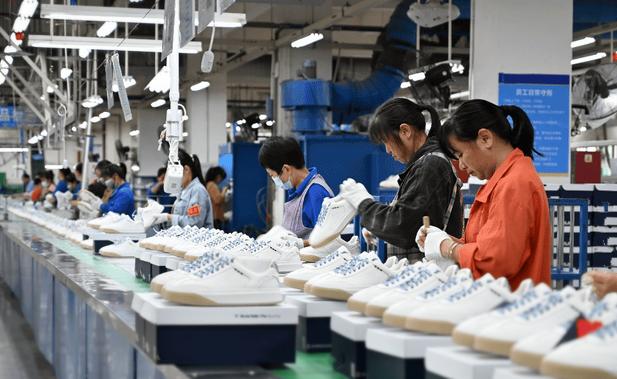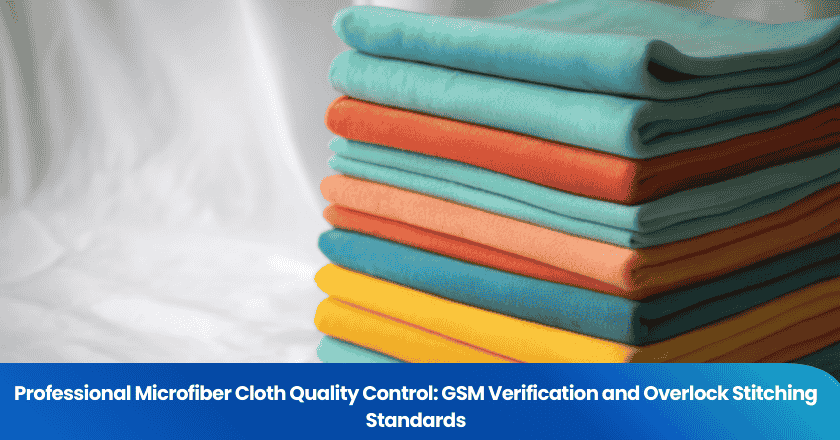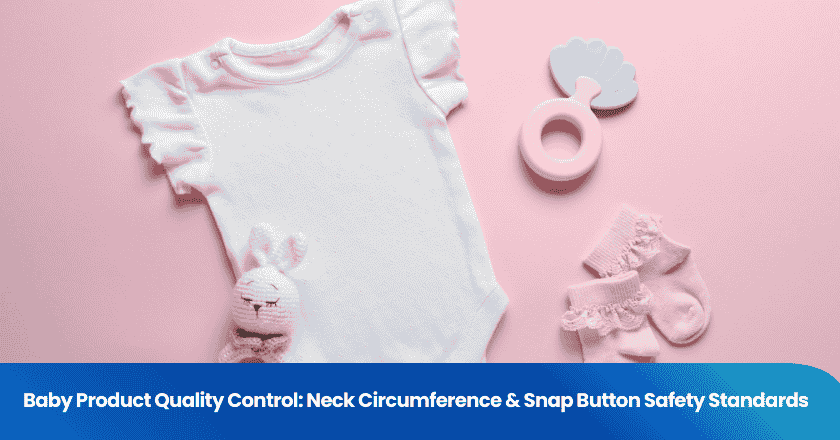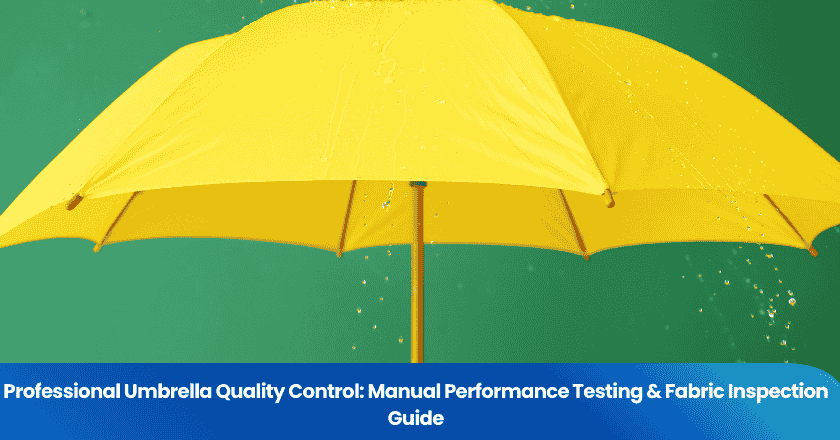
In today's fiercely competitive global market, the footwear and apparel industry not only strives for fashion and design innovation but also emphasizes the excellence and stability of product quality. The complexity of quality control lies in its encompassing every aspect from raw material procurement, production manufacturing to finished product inspection. Neglecting any detail may lead to flaws in the final product, thereby affecting the brand image and consumer trust. Meanwhile, as market competition intensifies, consumers' expectations for product quality are escalating. High quality has become the key for enterprises to win market share. Therefore, how to effectively enhance and maintain product quality while ensuring efficiency has become an urgent and significant issue for the footwear and apparel industry to address.
What is QA outsourcing?
QA outsourcing, fully known as Quality Assurance outsourcing, is an important strategic choice for enterprises in their pursuit of high-quality products and services. This model involves entrusting the quality management functions originally undertaken by the enterprise, such as quality inspection, process optimization, compliance review, etc., to third-party service providers with professional qualifications and rich experience. This approach is not only an innovation to traditional quality management methods, but also an important measure for enterprises to optimize resource allocation and enhance their core competitiveness.
By outsourcing QA, enterprises can significantly reduce the burden on their internal teams in terms of quality management, allowing them to devote more energy to core businesses such as product innovation and market expansion. At the same time, with the help of external experts' professional knowledge and advanced technology, enterprises can achieve professional and efficient quality management, ensuring that every aspect meets the highest industry standards. This service model not only enhances product quality but also greatly strengthens the market competitiveness of enterprises.
Compared to internal quality management, QA outsourcing demonstrates higher flexibility and adaptability. Faced with rapidly changing market environments and consumer demands, outsourcing service providers can swiftly adjust strategies and provide customized solutions, helping enterprises respond quickly to market changes and seize opportunities. Additionally, QA outsourcing typically offers higher-level professional services to enterprises at lower costs, maximizing cost-effectiveness.
The main advantages of outsourcing QA in the footwear and apparel industry
In the footwear and apparel industry, QA outsourcing, as an efficient quality management strategy, is leveraging its unique advantages to assist enterprises in achieving dual optimization of quality and cost. Below, we will delve into the five primary benefits that QA outsourcing brings to the footwear and apparel industry.
I. Reduce operating costs
Shoe and apparel enterprises often need to invest a significant amount of manpower, resources, and financial capital in quality management. This not only increases the operational costs of the enterprise but may also divert attention from its core business. By outsourcing QA, enterprises can entrust the tedious and specialized task of quality management to professional third-party service providers, thereby significantly reducing their investment in quality management. In this way, enterprises can focus more on core businesses such as product design and marketing, achieving efficient resource allocation and effective cost control.
II. Improve quality control efficiency
Professional QA outsourcing teams typically possess extensive industry experience and advanced detection technologies, enabling them to identify and find solutions to quality issues more quickly and accurately. Compared to internal quality management, outsourcing teams can perform tasks such as quality inspection and process optimization more efficiently, thereby significantly enhancing overall production efficiency. For the footwear and apparel industry, this translates to shorter production cycles, lower defect rates, and higher customer satisfaction.
III. Ensure that products comply with international standards and regulatory requirements
In the context of globalization, footwear and apparel products must comply with the quality standards and regulatory requirements of various countries and regions. Outsourcing service providers, who are typically familiar with international quality standards and regulatory requirements, can assist enterprises in ensuring that their products meet the entry criteria of target markets and reduce compliance risks. This not only enhances the international competitiveness of enterprises but also avoids potential losses such as market recalls and fines due to quality issues.
IV. Flexibly respond to market changes and achieve rapid expansion
The footwear and apparel industry is subject to rapid market changes, with consumers exhibiting diverse and ever-evolving demands. By outsourcing QA services, enterprises can flexibly adjust the scale and scope of outsourced services in accordance with changes in business needs, swiftly adapting to market fluctuations. Whether it's expanding production scale, adding product lines, or entering new markets, outsourcing service providers can provide timely and professional support, helping enterprises seize market opportunities and achieve rapid development.
V. Accessing the latest professional knowledge and technology to enhance management level
The professional team of outsourcing service providers not only possesses profound industry knowledge but also brings the latest quality management concepts and technologies to enterprises. Through close cooperation with the outsourcing team, footwear and apparel enterprises can continuously learn advanced quality management methods and technical means, promoting the continuous improvement of product quality and enterprise management level. This can not only enhance the core competitiveness of enterprises but also lay a solid foundation for their long-term development.
Quality risks and challenges faced by the footwear and apparel industry
In the footwear and apparel industry, with the intensifying trend of globalization and the increasingly diverse demands of consumers, enterprises are facing unprecedented quality risks and challenges. Below, we will explore these risks and challenges in detail and provide coping strategies for enterprises.
Quality consistency issues in global supply chains
With the deepening development of globalized production, footwear and apparel enterprises are increasingly reliant on transnational supply chains. However, there may be significant differences in quality control among raw material suppliers and manufacturers in different countries and regions. Ensuring consistent quality of raw materials and finished products from around the world has become a major challenge for the footwear and apparel industry. Inconsistent quality may not only lead to decreased product performance but also damage the corporate brand image and reduce consumer trust. Therefore, enterprises need to establish a strict quality control system to closely monitor every link in the global supply chain, ensuring the consistency and stability of product quality.
Pressure of quality compliance and certification
In international trade, various countries have different quality requirements and certification standards for imported goods. For footwear and apparel enterprises, this means that they need to invest a significant amount of resources to understand and meet these complex and ever-changing requirements, ensuring product compliance. This not only increases the operational costs of the enterprises but also may lead to product returns or encounter other compliance issues due to insufficient understanding of specific market requirements. Therefore, enterprises need to closely monitor the dynamic changes in international quality standards and regulations, and adjust their production strategies and quality management systems in a timely manner to ensure that their products can smoothly enter the target market.
Grow your business with TradeAider Service
Click the button below to directly enter the TradeAider Service System. The simple steps from booking and payment to receiving reports are easy to operate.





